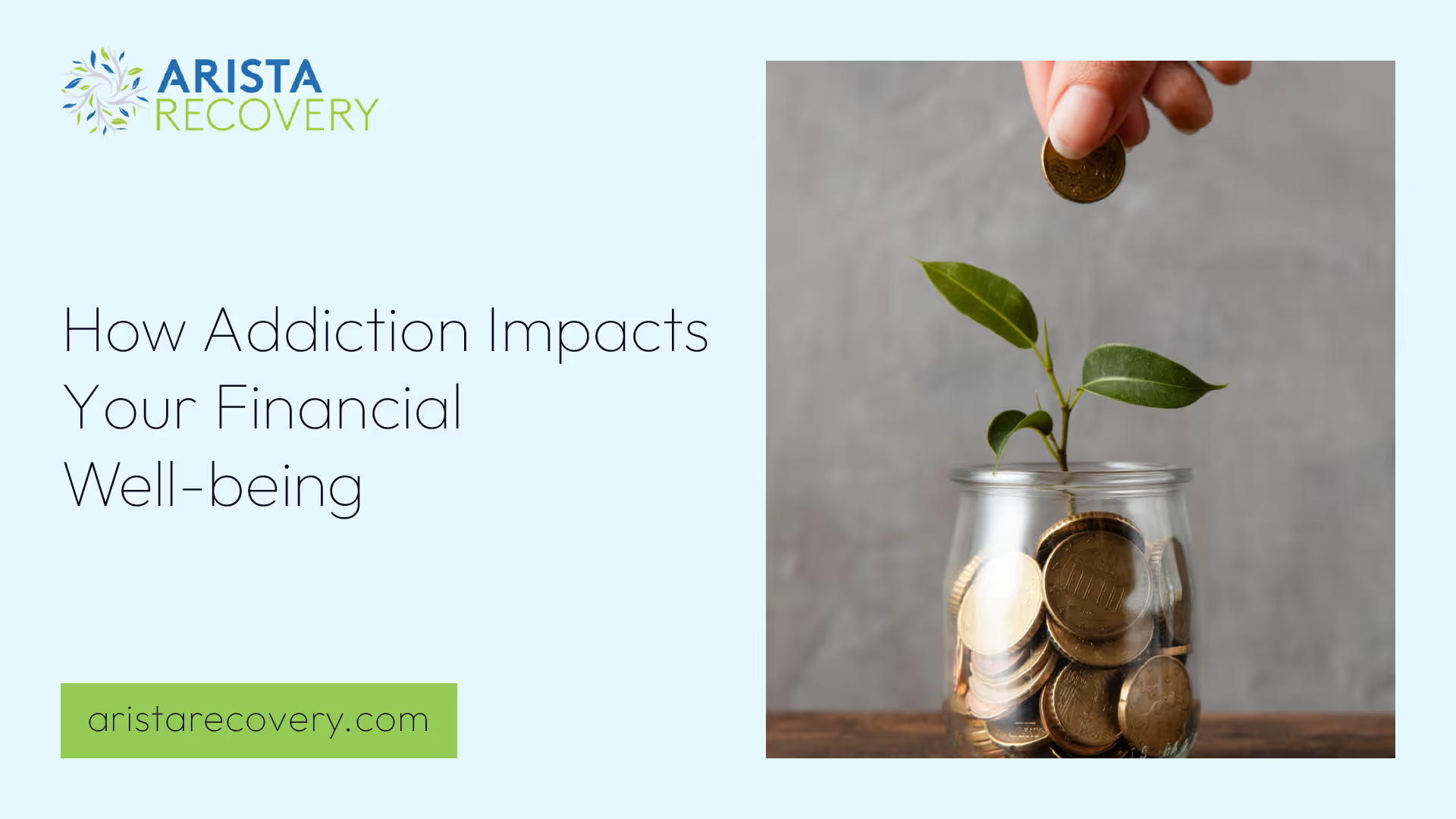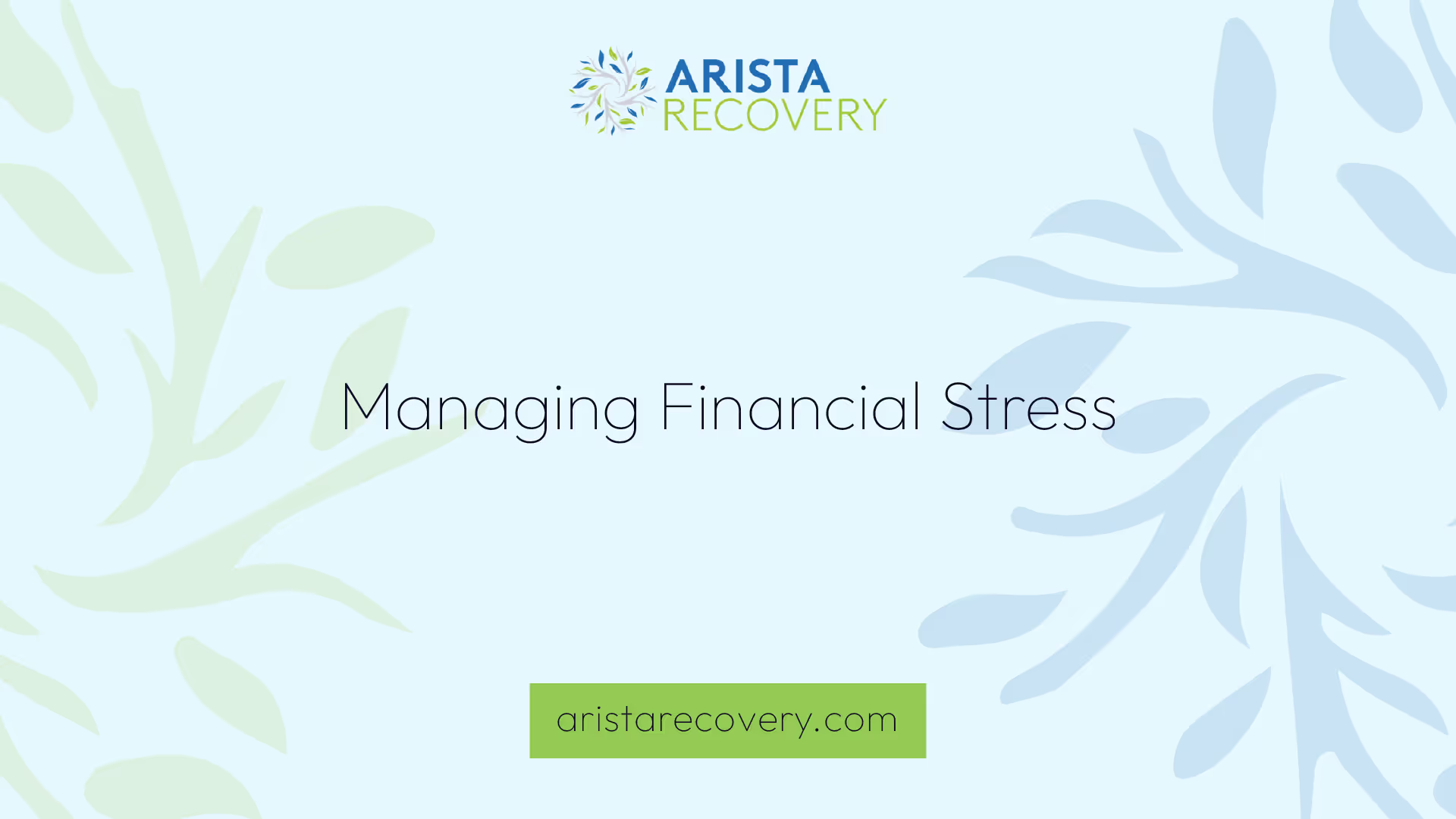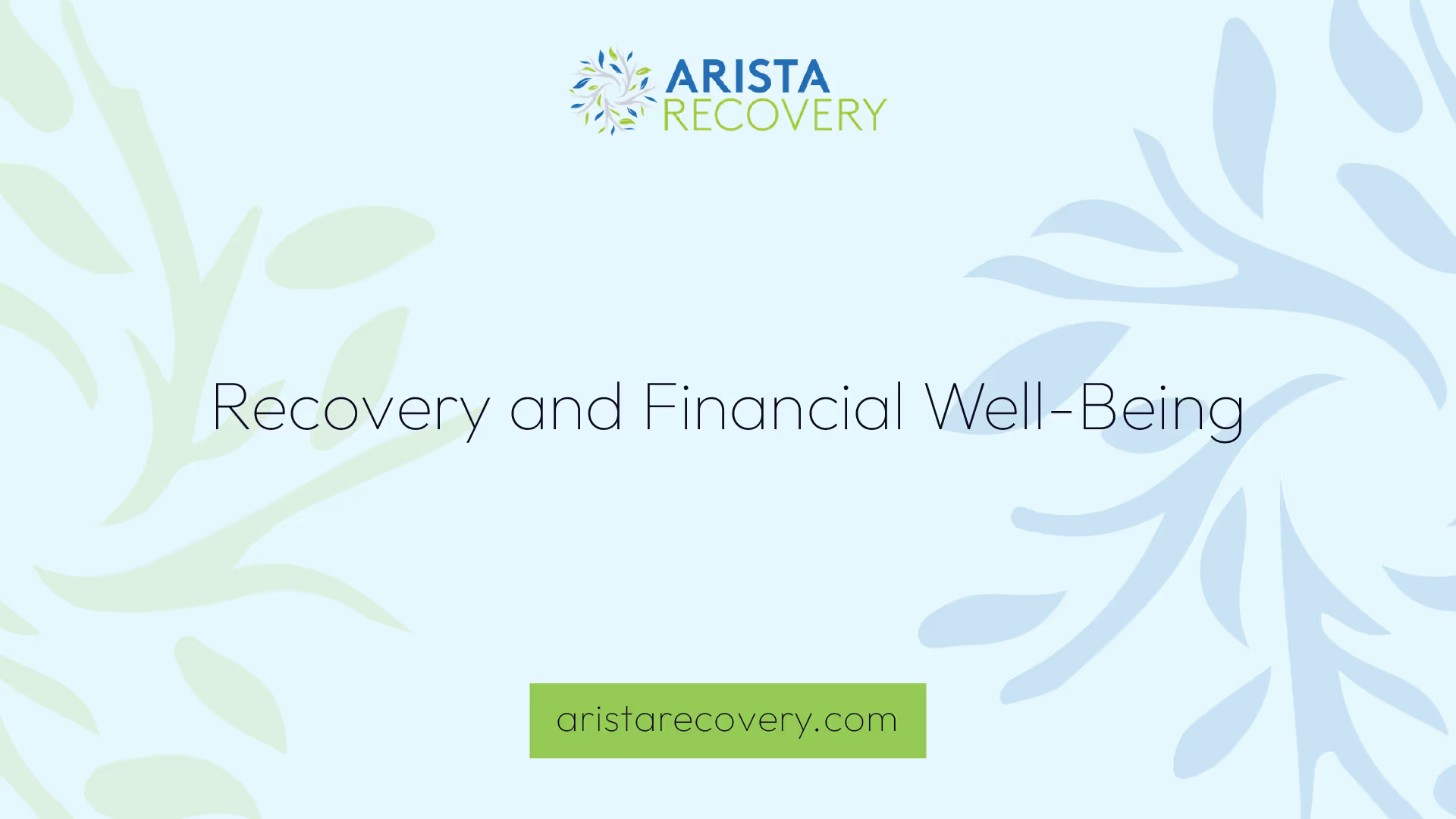How Addiction Impacts Your Financial Well-being


Impact of Addiction on Finances
Understanding how addiction can affect one's financial standing is key to creating an effective recovery plan. From immediate financial challenges to long-term consequences, addiction can strain an individual's finances significantly.
Financial Challenges of Addiction
One of the immediate challenges faced by individuals with addiction is the financial cost of maintaining the habit. Substance abuse can lead to significant expenses, resulting in debt and even homelessness, as individuals struggle with the costs of their addiction. As the addiction persists and tolerance develops over time, the cost of sustaining the habit can increase, leading to spiraling expenses [1].
In addition to the direct costs of addiction, there are often legal implications as well. Many addictive substances are illegal, and being caught can lead to fines, court costs, attorney fees, and potential incarceration, all of which can further strain an individual's finances.
Furthermore, addiction can lead to unemployment, which can compound the financial pressures faced by individuals. Studies have shown that the prevalence rates of Substance Use Disorders (SUD), including alcohol use, tobacco use, and illicit drug use, are higher among unemployed individuals compared to those who are employed [2].
Long-Term Financial Consequences
Beyond the immediate financial challenges, addiction can have long-term financial consequences. Poor money management, a common issue among individuals with addiction, can lead to ongoing financial instability even after recovery. This can manifest as an inability to budget effectively, prioritize essential spending, or seek and utilize professional financial advice.
Additionally, the long-term financial implications of addiction can include damaged credit scores, difficulty in finding employment, and ongoing legal issues. These challenges can create a cycle of financial instability that is hard to break free from.
Recognizing the financial impact of addiction is the first step towards recovery. By understanding these challenges, individuals can begin to take steps towards improving their financial health as part of their overall recovery process. For further reading on the financial implications of addiction, visit our article on financial consequences of addiction.
Financial Strategies for Recovery
Understanding how addiction affects finances is a critical aspect of recovery. Implementing financial strategies such as budgeting and seeking professional financial advice can help individuals take control of their financial situation and support their recovery journey.
Budgeting for Recovery
Money management is a crucial aspect for individuals in recovery post-addiction, as it is essential for sustaining long-term recovery and stability. Creating a budget is a key strategy to manage finances effectively in addiction recovery.
A budget can help individuals prioritize essential expenses, such as rent, food, and medical costs, and allocate funds for savings. Opening a savings account, even with small, regular deposits, can build a financial cushion and reduce stress about unexpected expenses for individuals in addiction recovery.
It is also important to note that money can be a powerful trigger for recovering addicts, as it has often played a significant role in fueling their addiction. Limiting direct access to cash and using money management strategies like setting savings goals and seeking support from trusted individuals can help prevent financial triggers that may lead to a relapse.
For more information on the relationship between addiction and financial problems, you can visit our article on addiction and financial problems.
Seeking Professional Financial Advice
While budgeting is a crucial step towards financial recovery, seeking help from a financial advisor can provide personalized strategies for money management. Professional financial advisors can offer expert guidance tailored to individual situations, helping individuals navigate the financial challenges associated with recovery.
In addition to leaning on family, friends, or counselors for support, individuals can benefit from seeking advice from trusted financial institutions specializing in supporting people in recovery with their financial independence, such as True Link [4].
Recovering from addiction is a challenging journey, but with the right financial strategies in place, individuals can regain control over their financial well-being. For more tips on how to financially recover after addiction, visit our article on how to financially recover after addiction.

Managing Financial Stress
Financial stress is a significant issue in the journey of overcoming addiction. It's essential to understand the strategies for managing financial stress, including building a savings cushion and avoiding unnecessary debt. These techniques can help individuals in recovery regain their financial stability and reduce the potential triggers that can lead to a relapse.
Building a Savings Cushion
Establishing a savings cushion is a critical step towards managing financial stress during addiction recovery. Opening a savings account and making small, regular deposits can help build a financial safety net, reducing stress about unexpected expenses. This practice can be instrumental in providing a sense of security and control over one's financial situation, thereby aiding in the recovery process.
It's crucial to remember that every small deposit counts. The goal is not to amass a large amount of money immediately but to develop a consistent saving habit. Celebrating small victories, like reaching a saving milestone, can be a huge morale boost. For more tips on financial recovery after addiction, visit our article on how to financially recover after addiction.
Avoiding Unnecessary Debt
Avoiding unnecessary debt is another essential strategy in managing financial stress. Tracking spending, finding ways to increase income, and planning for long-term financial goals are all crucial aspects of effective money management in addiction recovery.
Money is a powerful trigger for recovering addicts, as it has often played a significant role in fueling their addiction. Hence, it's vital to limit direct access to cash and adopt money management strategies such as creating a budget and setting savings goals. Additionally, seeking support from trusted individuals can help prevent financial triggers that may lead to a relapse.
Furthermore, financial advice from trusted institutions specializing in supporting people in recovery, like True Link, can be beneficial. They offer guidance tailored to the unique situations of individuals struggling with addiction recovery [4].
By building a savings cushion and avoiding unnecessary debt, individuals in recovery can reduce financial stress and focus on their journey towards sobriety. A thorough understanding of how addiction affects finances is a key part of this process.
Financial Implications of Drug Abuse
The financial impact of drug addiction is extensive, often leading to severe financial problems. It's essential to understand these implications to grasp how addiction can ripple through an individual's life, affecting not only their health but also their financial stability.
Costs of Sustaining Addiction
Substance dependence can lead to significant financial debt, as individuals often spend a considerable amount of money to sustain their addiction. The expenses associated with purchasing substances can quickly accumulate, leading to financial strain. Additionally, individuals may engage in risky behaviors such as borrowing money or taking out loans to support their habit, resulting in further debt and financial instability [2].
The longer a person's substance abuse problem persists, the more money they will spend on their addiction as their tolerance increases over time, escalating the financial repercussions. For more on this, our article on why does addiction lead to poverty? provides a comprehensive overview.
Legal and Medical Expenses
Drug abuse can also lead to legal and medical problems, both of which contribute to financial stress. Many drugs are illegal, and being caught can lead to legal issues, court costs, attorney fees, and potential incarceration, all of which can strain a person's finances and lead to long-term financial problems [1].
Moreover, long-term drug abuse can lead to health problems, increasing the risk of overdosing, developing chronic conditions, and incurring costly medical bills. Risky behaviors under the influence of drugs can lead to accidents, infections, and diseases, further adding to medical expenses and potential debt.
The financial implications of drug abuse are substantial, often leading to a cycle of debt and financial instability. Understanding these implications is a critical step toward recovery and financial well-being. For a comprehensive understanding of the financial consequences of addiction and guidance on how to financially recover after addiction, we invite you to explore our resources.

Recovery and Financial Well-Being
Financial well-being is an essential aspect of recovery, providing a sense of control and independence for individuals who have struggled with addiction. It's a step towards regaining stability and rebuilding a secure future after understanding the impact of how addiction affects finances.
Financial Independence Post-Recovery
Implementing money management strategies can lead to a more balanced and financially secure life post-addiction. The road to financial independence after recovery often involves learning to manage money responsibly. Recovering individuals may not have learned money management skills before developing a Substance Use Disorder (SUD), or they may have lost these skills during their active addiction.
Limiting direct access to cash and using money management strategies like creating a budget, setting savings goals, and seeking support from trusted individuals can help prevent financial triggers that may lead to a relapse. Seeking help from a financial advisor can provide personalized strategies for money management for recovering addicts, offering expert guidance tailored to individual situations.
Services like the True Link Visa® Prepaid Card can assist individuals in recovery by helping safeguard their finances and independence. Family members supporting individuals in recovery can set custom spending rules, block high-risk stores (e.g., liquor stores), and monitor spending, thereby preventing setbacks and enhancing independence during the recovery process [4].
For more on how to financially recover after addiction, visit our guide on how to financially recover after addiction.
Celebrating Financial Milestones
Achieving financial independence is a significant milestone in the recovery journey. It represents a return to control and self-sufficiency, both crucial elements in maintaining sobriety and avoiding relapse. Celebrating these milestones, no matter how small, can serve as a powerful motivator, reinforcing the positive behaviors that contribute to recovery and financial well-being.
Whether it's saving a certain amount of money, paying off a debt, or simply developing a realistic budget, these achievements deserve recognition. They symbolize the progress made on the journey towards recovery and financial independence. These small victories, when added together, can lead to significant changes in a person's life and their relationship with money.
Understanding the financial consequences of addiction and working towards rebuilding financial health is a critical part of the recovery process. It's never too late to start the journey towards financial independence and freedom from addiction.
Money Management Interventions
In dealing with the question of 'how does addiction affect finances,' it's crucial to consider the interventions that can help individuals struggling with addiction to manage their money more effectively. These interventions can help alter the reward perspective of these individuals, making non-drug expenditures more reinforcing and tangible. This focus can aid in longer-term budgeting, planning for future goals, and increasing the salience of alternative reinforcers to favor abstinence over substance use.
Behavioral Economic Approaches
Behavioral Economic findings have been applied to substance abuse treatments to increase the salience of alternative reinforcers and frame choices therapeutically. By manipulating choices to favor abstinence over drug use, these treatments have shown effectiveness in reducing substance use among individuals with addiction.
These approaches focus on altering the behavior of the individual with addiction, shifting their perspective from immediate gratification — obtained through substance use — to long-term rewards, such as financial stability and improved health. By reframing the perceived rewards and consequences, individuals can start to view their financial consequences of addiction as a significant deterrent to substance use.
Choice Bundling Techniques
Choice bundling is a technique that involves combining a single immediate decision with the expectation of making the same choice in the future. This method has been shown to favor larger and later rewards over immediate gratification.
By bundling choices, individuals with addiction can start viewing their decisions in a broader context. Instead of focusing on the immediate pleasure derived from substance use, they can start considering the long-term benefits of abstinence, such as improved health, better relationships, and financial stability.
Through this technique, individuals can also start associating positive outcomes with abstinence, helping them make choices that lead to long-term benefits. This is a crucial step in financially recovering after addiction.
In conclusion, the impact of addiction on an individual's finances can be severe and long-lasting. However, through effective money management interventions, individuals struggling with addiction can start making better financial decisions, paving the way for a healthier and financially stable future.
References
[1]: https://www.banyantreatmentcenter.com/2020/12/22/financial-effects-of-drug-abuse-philadelphia/
[2]: https://www.hopebridgerecovery.com/blog/how-does-addiction-affect-finances
[3]: https://upliftrecovery.com/money-management-for-recovering-addicts-10-effective-tips/
[4]: https://www.truelinkfinancial.com/blog/managing-finances-for-people-in-recovery
You’re not alone in this.
When mental health challenges and addiction intersect, it can feel isolating. At Arista, we offer compassionate, evidence-based, and trauma-informed care to help you heal, grow, and move forward.
You’re not alone in this.
When mental health challenges and addiction intersect, it can feel isolating. At Arista, we offer compassionate, evidence-based, and trauma-informed care to help you heal, grow, and move forward.
Support that moves with you.
You’ve taken a brave first step. At Arista Recovery, we’re here to help you continue with best-in-class care designed for long-term healing and support.
.webp)






